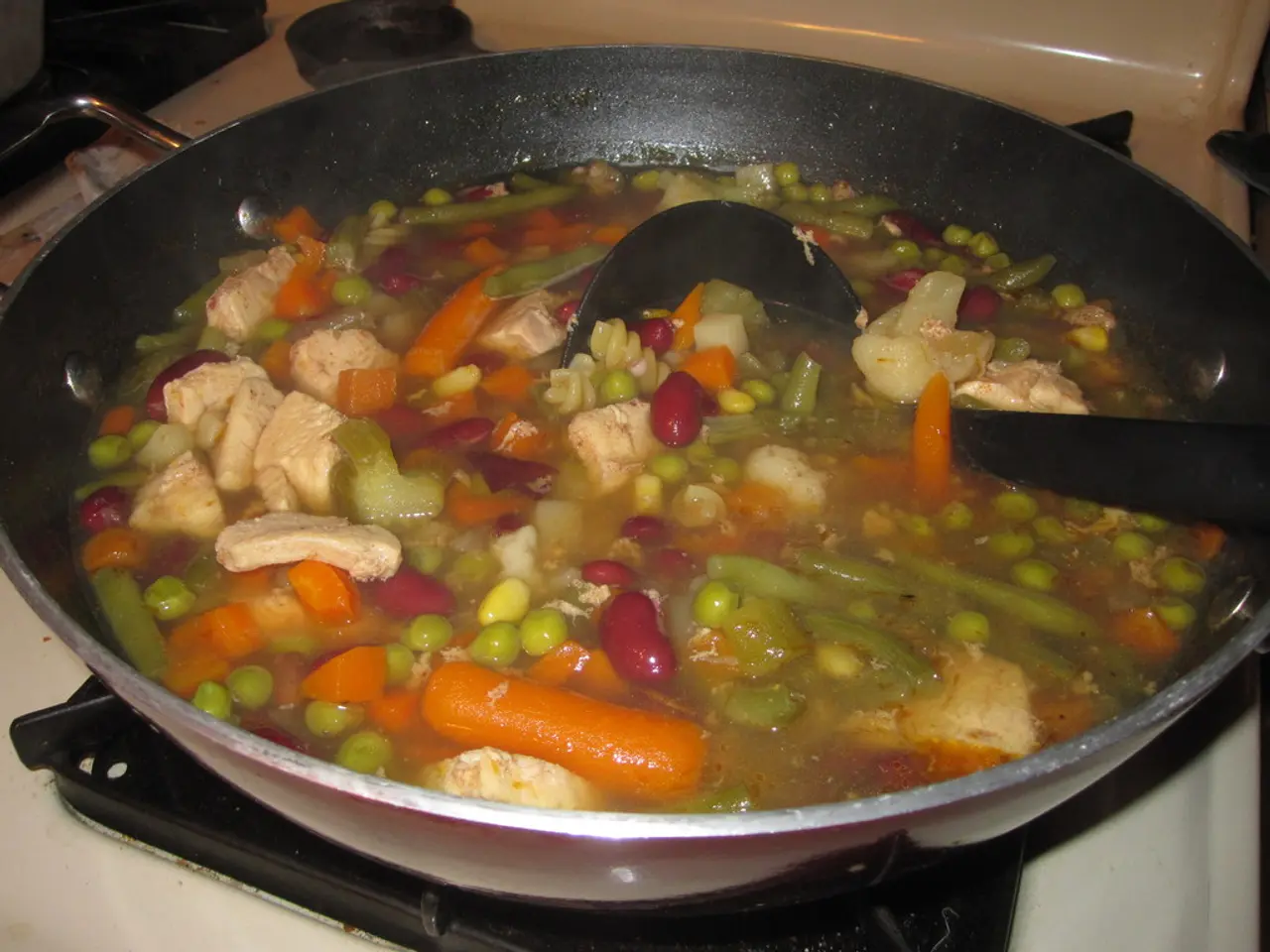Transformed kitchens spark enhanced wellbeing: Ghana's cookstove transformation surges forward
In Ghana, a significant shift towards cleaner and more efficient cooking is underway, thanks to the Clean Cookstove Initiative. This programme, aimed at reducing wood fuel demand and health risks from smoke inhalation, particularly among women, is making a positive impact on the lives of many Ghanaian families.
The initiative, which is a partnership between the government and Envirofit International, a US-based clean energy company, has already reached over 180,000 families, with plans to extend it to more parts of the country. The stoves used in the programme consume around 60% less wood than traditional models, making them a cost-effective solution for many households.
The benefits of the clean cookstoves are far-reaching. Field research shows that traditional wood stoves in Ghana have around 11.8% thermal efficiency, while traditional charcoal stoves have about 22.1%. Cleaner cookstoves improve these efficiencies, reducing fuel consumption and emissions. This reduction in smoke and toxic emissions is significant, with Dr Daniel Tutu Benefoh, head of Ghana's Carbon Market Office, stating that the clean cookstoves reduce smoke and toxic emissions in individual households by as much as 80%.
Health benefits are also pronounced due to lowered exposure to harmful smoke inhalation, particularly for women and children who are most exposed during cooking. The World Bank estimates that around 600,000 premature deaths occur annually on the African continent due to dirty cooking. By reducing smoke and toxic emissions, the Clean Cookstove Initiative is helping to combat this issue.
The programme is one of six climate mitigation schemes in Ghana backed by the KliK Foundation, a Swiss organization that has pledged approximately $850 million in funding. The funding comes through a combination of grants, investments, and result-based financing dependent on verified fuel savings and emission reductions.
The initiative's expansion plans are ambitious. It seeks to scale efforts by increasing adoption rates of clean cookstoves in households across Ghana, linking with organizations like the Clean Cooking Alliance (CCA) to mobilize resources and innovation. There is ongoing research and tool development aimed at supporting behavioral change (reducing fuel stacking), improving stove designs, and integrating corporate and governmental partnerships to drive broader access.
The impact of the initiative is already being felt by many families. Aminatu Hakim, a mother of six from Pullima near Tumu, in the Upper West Region, is one such example. She has used her savings from the new stove to reinvest in her small onion business, with the proceeds now supporting her family's daily needs. Many other families participating in the programme have reported saving money on fuel and experiencing fewer health problems linked to smoke.
The Ghanaian government plans to distribute another 500,000 clean cookstoves over the next three years, focusing on rural and underserved areas. This commitment to cleaner cooking could save 4.7 million lives in Africa by 2040, according to the International Energy Agency (IEA). As the Clean Cookstove Initiative continues to grow, it promises to make a significant contribution to improving health and environmental outcomes in Ghana and beyond.
References:
- Clean Cooking Alliance
- Ghana News Agency
- The World Bank
- Clean Cooking Alliance
- The Clean Cookstove Initiative in Ghana, an international partnership with Envirofit International and the government, aims to extend its cleaner and more efficient cooking solutions to more families across the country, ultimately reducing health risks from smoke inhalation.
- By improving the efficiency of cooking stoves and reducing smoke and toxic emissions, the Clean Cookstove Initiative in Africa contributes to combating health issues such as premature deaths caused by dirty cooking, with an estimated reduction of up to 80% in individual households.
- The initiative's far-reaching benefits also extend to the environment, as cleaner cookstoves in Ghana consume around 60% less wood than traditional models, thereby contributing to the fight against climate change by reducing wood fuel demand and emissions.
- In support of the Clean Cookstove Initiative, the KliK Foundation, a Swiss organization, has pledged approximately $850 million in funding, which comes through a combination of grants, investments, and result-based financing dependent on verified fuel savings and emission reductions.
- The Clean Cookstove Initiative is not only improving the health and wellness of Ghanaian families by providing cleaner cooking solutions but also boosting their economic opportunities, as seen in the case of Aminatu Hakim, a mother who used her savings from the new stove to reinvest in her small business.




